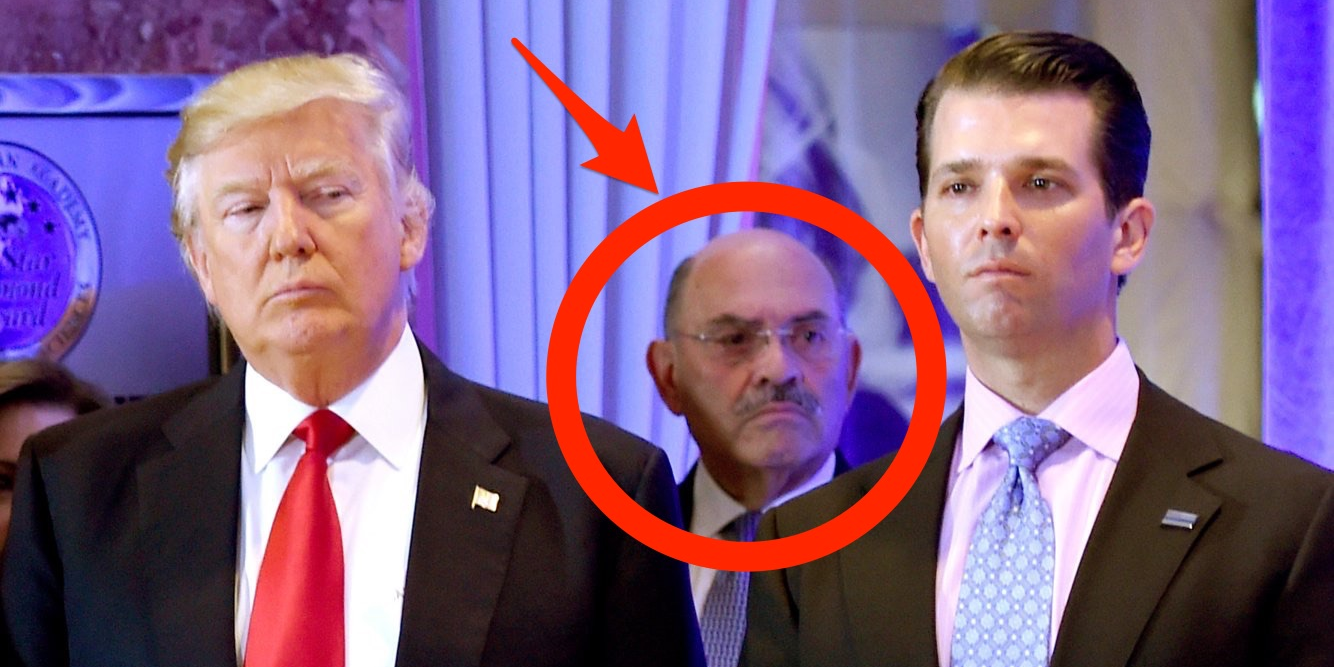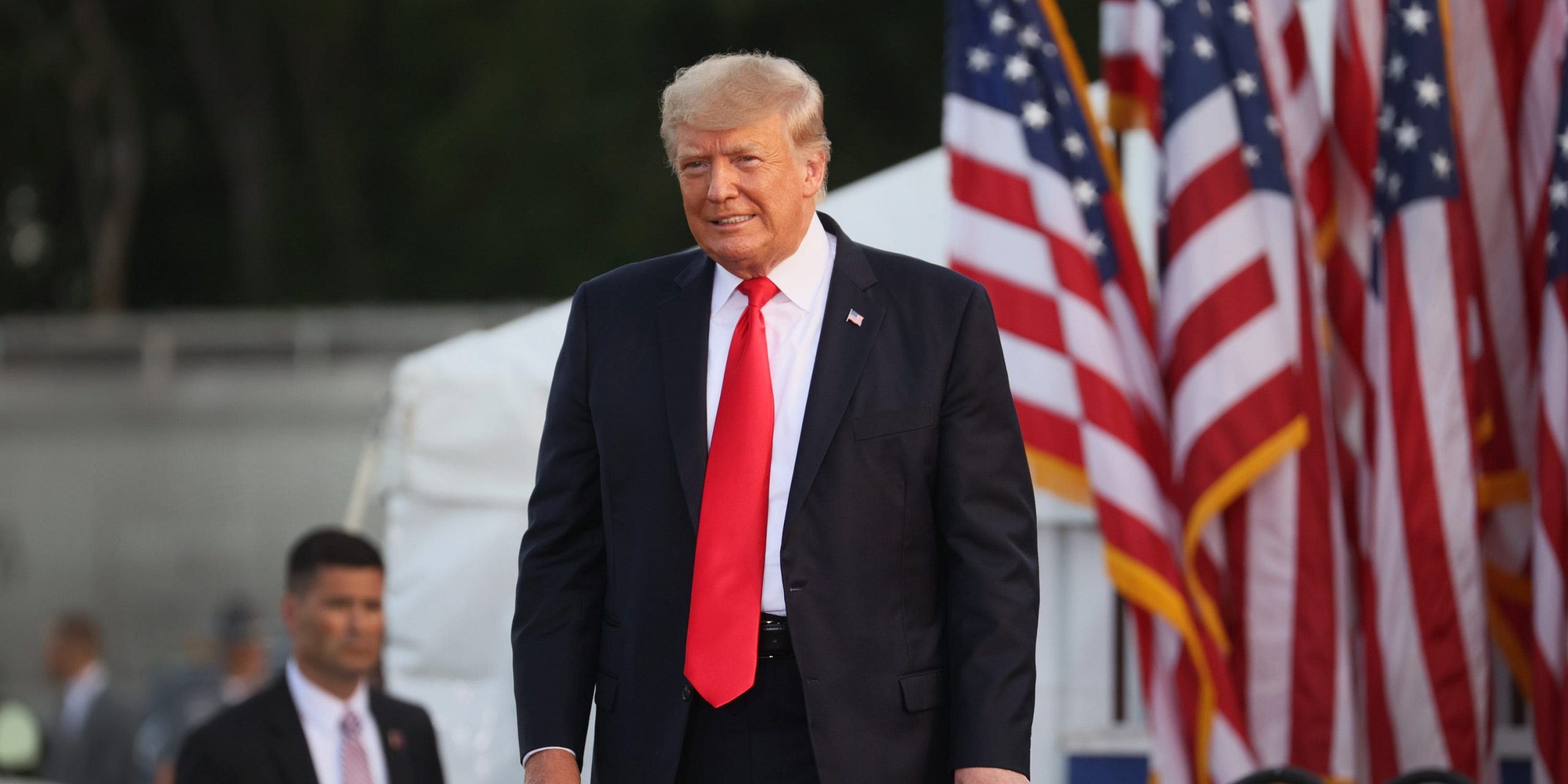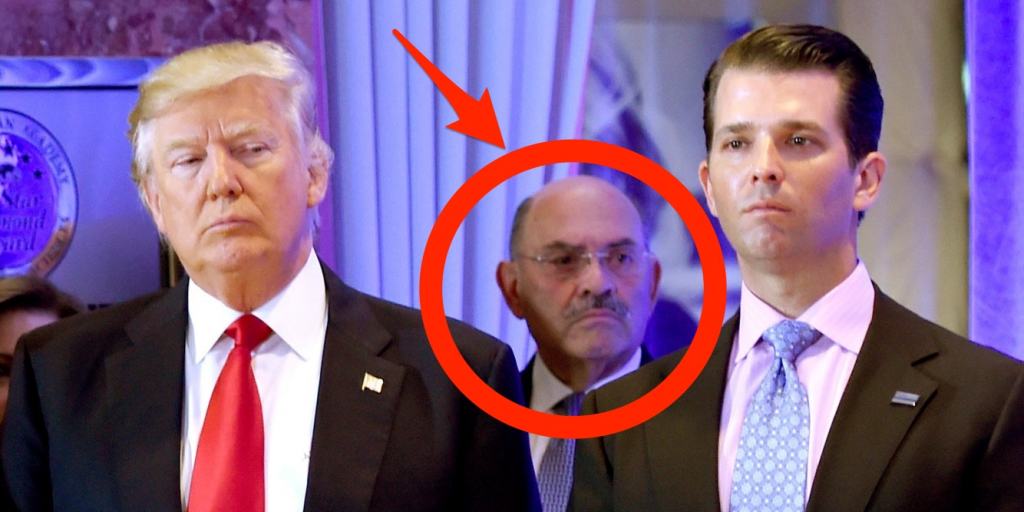
TIMOTHY A. CLARY/AFP/Getty Images
- Manhattan prosecutors criminally charged the Trump Org. and CFO Allen Weisselberg with 15 felony counts.
- Weisselberg and the Trump Org. were accused of scheme to defraud, conspiracy, and grand larceny, among other charges.
- They pleaded not guilty.
- See more stories on Insider's business page.
A highly anticipated criminal indictment against the Trump Organization and its longtime chief financial officer, Allen Weisselberg, charged them with 15 felony counts including scheme to defraud, conspiracy, and grand larceny.
Prosecutors said the scheme was carried out as part of a "sweeping and audacious payment scheme" and that Weisselberg personally did not pay taxes on $1.7 million of his income dating back 15 years. Investigators also accused the defendants of filing false tax returns.
Weisselberg and the Trump Organization pleaded not guilty to the charges against them. Manhattan DA Cyrus Vance, Jr. and New York State Attorney General Tish James, who joined forces for the case, both attended the hearding and sat in the front row.
Weisselberg arrived in handcuffs while wearing an N95 mask, and was held by two assistant DAs flanked on either side. One of his attorneys, Mary Mulligan, briefly conferred with Mark Pomerantz, a prosecutor on Vance's team, before the hearing began.
Thursday's are the first charges to come out of a three-year investigation into whether former President Donald Trump's sprawling real-estate company broke state laws and engaged in financial fraud.
In court Thursday afternoon, Carey Dunne, a top deputy for District Attorney Cyrus Vance Jr., blasted former President Donald Trump for downplaying the charges.
"This was a 15-year-long tax fraud scheme," he said. "Contrary to a statement from the former CEO, this was not a standard tax plan."
Prosecutors urged the court not to grant any leniency because Weisselberg and the company fought them at every turn, refused to cooperate with subpoenas, and barred employees from speaking with investigators unless it was before the grand jury.
"There is no clearer example of a company that should be held to account," Dunne said, adding that contrary to Trump's claims of politicization, the grand jury was unbiased and had no skin in the game.
Prosecutors also confiscated Weisselberg's passport, saying that he's wealthy and has access to a private jet. The judge permitted him to be released after he handed over his passport. And investigators gave Weisselberg's attorneys a hard drive full of discovery material, and the judge set a September court date to discuss the status of the case.
Trump himself was not charged in the indictment, though the investigation is ongoing. Prosecutors have empaneled a special grand jury that is expected to meet through November and weigh which charges to bring.
Weisselberg has long been a key figure for prosecutors given his status as the Trump family's chief bookkeeper and a close confidant of Trump himself. He surrendered himself to the Manhattan DA and pleaded not guilty on Thursday.
The investigation kicked into high gear in February, when the Supreme Court cleared the way for prosecutors to obtain eight years of Trump's taxes. Investigators began circling Weisselberg in earnest earlier this year and secured the cooperation of his former daughter-in-law, Jennifer.
Allen Weisselberg himself appeared to rebuff attempts from prosecutors to secure his cooperation. Legal experts say that, given his vast knowledge of the Trump Organization's finances, guiding jurors through the vast number of documents prosecutors have already subpoenaed in the case.
Last week, when it surfaced that Weisselberg and the Trump Organization could face criminal charges within the next several days, the company's lawyer Ron Fischetti told NBC News that the investigation was "outrageous," adding that the "corporate office will plead not guilty and we will make an immediate motion to dismiss the case against the corporation."
"They could not get Allen Weisselberg to cooperate and tell them what they wanted to hear, and that's why they are going forward with these charges," he said. "They could not get him to cooperate because he would not say that Donald Trump had knowledge or any information that he may have been not deducting properly the use of cars or an apartment."
Hush money payments, manipulated property values, and tax-free benefits
The CFO first came to national attention when Michael Cohen, Trump's former longtime lawyer and fixer, testified that he helped coordinate an illegal hush-money payment to the adult film actress Stormy Daniels in exchange for her silence about an alleged affair with Trump that took place in the mid-2000s.
Cohen pleaded guilty in 2018 to campaign-finance violations, tax evasion, and bank fraud in connection to the payment, which was made to Daniels shortly before the 2016 election. He told prosecutors and later testified to Congress that he committed his crimes "for the benefit of, at the direction of, and in coordination" with Trump. He also said he and Weisselberg were both in Trump's office when Trump "directed us to go back to Weisselberg's office and figure this all out," referring to the $130,000 hush-money payment.
Cohen went on to implicate Weisselberg and Trump's eldest son, Donald Jr., in a criminal conspiracy of "financial fraud."

Scott Olson/Getty Images
Manhattan district attorney Cyrus Vance Jr. subsequently opened a state criminal investigation into whether the Trump Organization violated New York laws in connection to the payment. But the inquiry has since ballooned to examine if the company artificially inflated or deflated the value of its assets for loan and tax purposes, and if it violated banking and insurance laws by doing so.
Prosecutors have pressured Weisselberg's family members in their attempts to flip him. Jennifer Weisselberg told Insider she gave investigators boxes of documents from her messy divorce with Barry Weisselberg. She said they show evidence of the couple receiving fringe benefits from the Trump Organization - like housing and tuition payments for their children - without properly paying taxes on them.
The hard evidence prosecutors seek in financial crime cases typically lies in tax filings, real estate documents, and corporate records. But legal experts have said that having a witness familiar with these dealings, such as Weisselberg, cooperate with investigators about his role and Trump's would strengthen their case to jurors.
Prosecutors have also examined whether Matthew Calamari, the Trump Organization's chief operating officer, and his son Matthew Calamari Jr., the company's head of security, accepted similar perks without paying taxes on them.
Nicholas Gravante Jr., an attorney representing both Calamaris, told Insider that he did not expect charges against his clients this week.
"Although the DA's investigation obviously is ongoing, I do not expect charges to be filed against either of my clients at this time," he said.
The indictments will shape the legacy of Manhattan District Attorney Cyrus Vance Jr., who will leave office at the end of the year after a 12-year run as DA.
The prosecutor came under scrutiny following revelations that he previously declined to charge Ivanka and Donald Trump Jr. in 2012, for an alleged scheme that involved misleading prospective condo buyers, while accepting a campaign donation from their attorney.
This story is breaking. Check back for updates.
